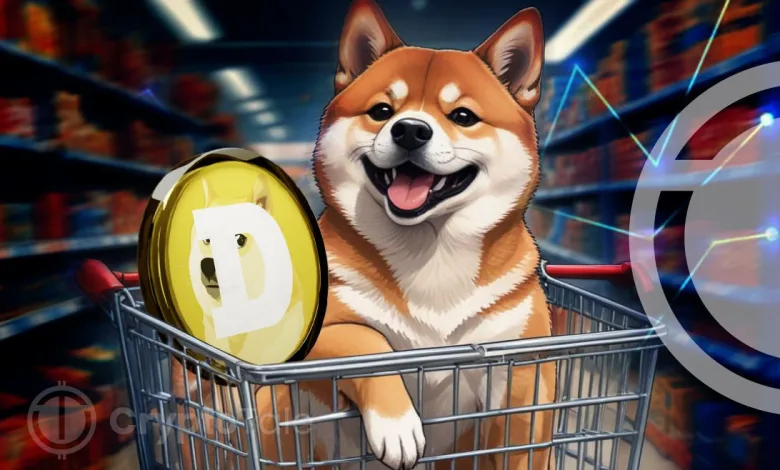A Comprehensive Review on Dogecoin: A Coin Created as A Joke

Have you ever thought that a project which was started to make fun of another project, can take the world by storm? Yes, the project I am talking about is Dogecoin. Dogecoin, which was born from a popular “Doge” meme featuring a Shiba Inu, has shocked the crypto world by growing into a robust digital currency with its dedicated community. This article will give you a clear description of Dogecoin.
What is Dogecoin?
Dogecoin was the first ever cryptocurrency that was created as a joke or meme. The coin is based on a popular meme called “Doge,” which features a Shiba Inu dog. It also uses the Shiba Inu as its logo. Dogecoin uses a variant of the hashing algorithm called Scrypt and Proof of Work as its consensus mechanism, making it less resource-intensive than Bitcoin’s SHA-256 algorithm.
Unlike most cryptocurrencies, which have the total amount of supply capped, Dogecoin has no limit to the number of coins mined, which means it has no maximum supply limit. Currently, it has a total supply of 145,362,536,384 DOGE and is one of the top cryptocurrencies based on market capitalization.
Dogecoin has a low transaction fee of 0.0025 DOGE and a fast transaction time of around 1 minute. This makes it ideal for various purposes, such as tipping content creators on social media platforms like Reddit and X (Twitter), charitable donations, etc. Furthermore, a small number of online merchants and service providers, such as e-commerce platforms and gaming websites, accept Dogecoin as payment.
History of Dogecoin
In 2013, Jackson Palmer, a product engineer in Sydney, Australia, had an idea to create a cryptocurrency based on the famous “Doge” meme. He later purchased a domain name under dogecoin.com with the logo of the “Doge” meme on a gold coin. Later, Billy Markus, a software developer from Portland, joined him in creating the Dogecoin cryptocurrency.
The coin was officially launched on December 6, 2013, and within the first 24 hours, Markus mined around 1 million Dogecoins. On December 19, the coin’s value rose by 300%, which attracted the attention of investors worldwide. But, this rally was short-lived, as the price reverted back to 80% within a few days. A few days after the rally, the Dogecoin wallet was hacked, and the hackers escaped with millions of Dogecoins. However, through a campaign launched by the developers and community members called “SaveDogemas,” they managed to recover most of the losses. A few months after the launch, Billy Markus left Dogecoin. Shortly after his departure in 2015, Jackson Palmer also left the memecoin.
To increase Dogecoin’s popularity, the community gathered funds and sponsored NASCAR driver Josh Wise at the Talladega All-Star race and sent the Jamaican Bobsleigh team to the Olympics in 2014. Although Dogecoin was still doing well over the years, it was only after Elon Musk endorsed Dogecoin on X in 2021 that it gained much-needed attention and popularity. According to statistics, Dogecoin had a market cap of around $500 million by 2020, and by mid-2021, it had a market cap of $80 billion, ranking in the top 5 cryptos based on market cap. In this time period, Dogecoin reached its all-time high of $0.74.
In May 2024, Kabosu, the Shiba Inu dog behind the “Doge” meme and the inspiration behind the Dogecoin, passed away. The passing of Kabosu led to many famous individuals like Elon Musk tweeting in X and expressing their condolences.
Dogecoin Foundation
The Dogecoin Foundation is a non-profit organization established in 2014 to support the development of the expanding Dogecoin project. The foundation was behind the funding and establishment of the Doge4Water project, which involved building a clean water well in Kenya and sending the Jamaican bobsled team to the Sochi Winter Olympics.
However, the foundation was very active for the first few years and later became inactive. It was only in 2021 that the foundation was relaunched with a renewed focus and commitment to Dogecoin. The foundation’s goals include developing Dogecoin to ensure security, stability, and scalability. It also includes providing support for various projects and educating the public about Dogecoin and blockchain technology.
The relaunched Dogecoin Foundation consists of an advisory board with various high-profile members, such as Vitalik Buterin and Elon Musk’s representative, Jared Birchall. It also participates in various charitable activities and leverages the community to support various causes.
How Does Dogecoin Work?
Dogecoin has its own blockchain and records all transactions on its digital ledger. It uses a proof-of-work consensus mechanism where miners need to solve complex mathematical problems to validate transactions. The first miner to solve the problem will be able to add the block to the blockchain and will be awarded 10,000 DOGE. At first, the mining reward per block was around 1,000,000 DOGE, but due to Dogecoin implementing a halving mechanism, once every 100,000 blocks, the rewards have been reduced to the current 10,000 DOGE.
Since the number of Dogecoins is not limited, it is a very bad option as a store of value. As more coins are mined, your coins will become less valuable, as the coin is highly inflationary by design.
Advantages of Dogecoin
- The transaction speed is about 1 minute, which is much faster than other cryptocurrencies.
- Because there is much less competition in mining Dogecoin, the transaction fees are much lower.
- The Dogecoin community is well known for its activity in organizing charitable events and raising funds for them.
Disadvantages of Dogecoin
- As Dogecoin has an unlimited supply, the increase in the number of tokens leads to inflation and a decrease in coin price.
- It is highly volatile, with prices being subject to social media trends, market speculation, and endorsement from high profile figures.
- Dogecoin’s use cases are very limited compared to those of other cryptocurrencies like smart contracts and dApps.
Conclusion
Dogecoin, which was initially created as a joke, has evolved into a major player in the cryptocurrency world. Its meme coin status, instead of being a hindrance, has fostered a vibrant and active community that uses Dogecoin for tipping, microtransactions, and charitable donations. Furthermore, despite the fast transaction speeds and low transaction costs, it faces challenges like high inflation costs because of its unlimited supply and price volatility driven by market speculation and social media.




